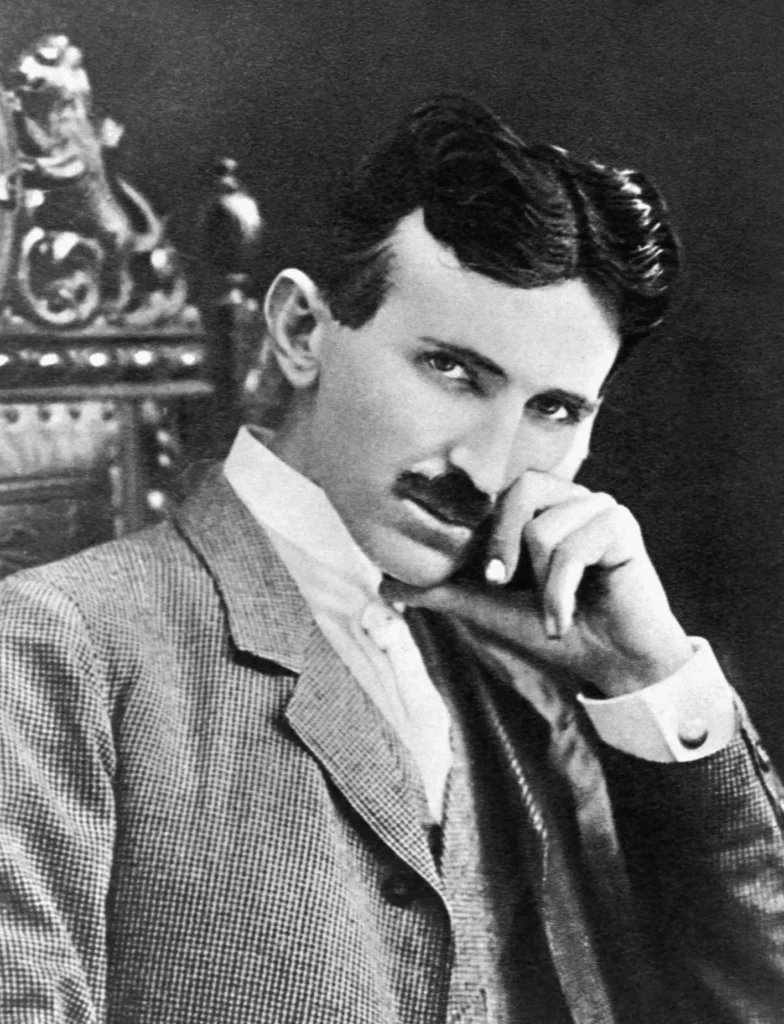The INTJ Personality Type, often referred to as “The Mastermind” or “The Architect,” is one of the rarest and most intriguing among the 16 personality types identified by the Myers-Briggs® Type Indicator (MBTI).
Renowned for their sharp intellect, strategic thinking, and ability to execute long-term plans with precision, INTJs are visionaries who bring structure to chaos.
They thrive in environments that challenge their intellect and reward their drive for mastery.
Often seen as the architects of innovative ideas, INTJs have an unmatched ability to foresee possibilities and devise plans to make them a reality.
In this blog, we’ll take a deep dive into the traits, strengths, and challenges that define the INTJ Personality Type.
Whether you’re an INTJ yourself, trying to understand someone who fits this personality type, or simply interested in personality theory, this exploration will provide valuable insights into the dynamic and often enigmatic world of INTJs.
Table of Contents
Understanding the INTJ Personality Type
The INTJ Personality Type is characterized by its unique blend of analytical skills, creativity, and determination.
As one of the four “Rational” types, INTJs excel at seeing the bigger picture and identifying how individual components fit into a broader framework.
They are highly independent thinkers who approach problems with logic and strategic foresight.
This personality type thrives in environments where innovation, structure, and efficiency are valued.
INTJs represent only about 2% of the population, making them one of the rarest personality types, especially among women.
Their rarity adds to their mystique, as they often stand out for their unconventional approach to problem-solving and leadership.
INTJs are not easily swayed by emotions or societal expectations, instead choosing to rely on their inner logic and personal values.
What Does INTJ Stand For?
The acronym INTJ breaks down into the following four preferences:
- Introversion (I): INTJs draw energy from solitude and introspection, often requiring quiet time to recharge and think deeply.
- Intuition (N): They focus on abstract concepts, future possibilities, and innovative solutions rather than immediate details or past experiences.
- Thinking (T): Logical and objective decision-making guides their actions and choices, often prioritizing facts over feelings.
- Judging (J): INTJs prefer structure and organization, often creating detailed plans to achieve their long-term goals with precision.
The Mastermind: A Brief Overview

Often labeled “The Mastermind” or “The Architect,” INTJs are known for their ability to turn ideas into actionable strategies.
They are planners at heart, capable of envisioning the end goal and methodically working toward it.
Their strength lies in their ability to see patterns and connections that others might miss, making them exceptional at problem-solving and innovation.
INTJs are often described as confident, determined, and intensely focused individuals.
They possess a unique combination of creativity and practicality, enabling them to tackle complex challenges with a blend of vision and execution.
While their logical approach to life can sometimes make them seem detached, INTJs are deeply passionate about their pursuits and strive to make meaningful contributions to the world.
Core Traits of the INTJ Personality Type
The INTJ Personality Type is defined by its unique blend of visionary thinking, intellectual curiosity, and a methodical approach to life. Often referred to as “The Mastermind,” INTJs are strategic planners who excel at turning ideas into actionable plans.
Below are the expanded core traits that make the INTJ Personality Type stand out.
1. Visionary Thinking and Future Orientation

INTJs are natural visionaries, driven by an ability to see patterns, predict outcomes, and craft long-term strategies.
They focus on the “big picture” and work tirelessly to bring their innovative ideas to life.
Unlike other personality types except INFJs that may prioritize the present, INTJs are always planning for the future, considering every detail to ensure their vision becomes a reality.
Their ability to anticipate trends and foresee potential challenges makes them exceptional leaders and problem-solvers.
2. Independence and Self-Reliance

The INTJ Personality Type values independence above all else. INTJs have a deep sense of self-reliance, preferring to handle tasks and challenges on their own rather than depend on others.
This autonomy is not rooted in arrogance but in their confidence in their abilities and desire for control over their outcomes. Their independent streak allows them to pursue their goals without being swayed by external pressures or societal norms.
3. Strategic and Analytical Mindset

One of the defining traits of the INTJ Personality Type is their sharp analytical skills and strategic thinking.
They thrive in environments that require critical thinking and logical problem-solving.
INTJs approach challenges systematically, breaking down complex problems into manageable parts and considering multiple perspectives before making a decision.
This logical approach ensures that they make well-informed and efficient choices, whether in their personal lives or professional endeavors.
4. Ambition and High Standards

INTJs are known for their relentless ambition and drive to achieve their goals.
They set high standards for themselves and those around them, expecting excellence in every aspect of their work.
This ambition often propels them to leadership roles where they can implement their ideas and achieve their vision.
However, their high expectations can sometimes come across as demanding, especially when dealing with people who do not share their level of dedication or focus.
5. Emotional Reserve and Thoughtfulness

While the INTJ Personality Type is often associated with logic and strategy, they also possess a deep emotional depth, though it may not always be outwardly visible.
INTJs are introspective and thoughtful, carefully processing their emotions and considering how they align with their goals and values.
However, they may struggle to express these emotions openly, leading others to perceive them as distant or reserved.
Despite this, INTJs value meaningful relationships and invest deeply in the people they care about.
By understanding these core traits, it becomes clear why the INTJ Personality Type is often associated with leadership, innovation, and strategic thinking.
Their combination of foresight, logic, and independence makes them uniquely equipped to excel in both personal and professional pursuits.
Strengths of the INTJ Personality Type
The INTJ Personality Type, often referred to as “The Mastermind,” possesses unique strengths that set them apart in both personal and professional environments.
These individuals are known for their exceptional ability to strategize, innovate, and solve problems effectively. Below are the five core strengths of the INTJ Personality Type, expanded to highlight their unique capabilities.
1. Strategic Visionary

INTJs excel at seeing the big picture and charting a clear path to their goals.
They have a remarkable ability to foresee challenges and opportunities, which allows them to create long-term strategies with precision.
Whether planning a career move, organizing a project, or envisioning a better future, INTJs are experts at connecting dots others might overlook.
This strength makes them indispensable in roles that require planning, innovation, and leadership.
2. Logical and Analytical

INTJs possess a sharp, logical mind that enables them to approach problems with clarity and precision.
They analyze situations deeply, often breaking them down into smaller, more manageable components to find efficient solutions.
This analytical approach allows INTJs to solve complex challenges effectively while maintaining a clear focus on their objectives.
Their decisions are based on facts, evidence, and reason, making them reliable and trustworthy problem-solvers in both work and personal settings.
3. Highly Innovative

One of the most defining traits of the INTJ Personality Type is their capacity for innovation.
INTJs love to explore new ideas and challenge conventional ways of thinking.
They are not afraid to push boundaries and take intellectual risks, often leading to groundbreaking solutions and improvements.
Their innovative mindset thrives in environments where creativity and forward-thinking are valued, and they are often the ones driving change and progress within their teams or organizations.
4. Quick Learners

INTJs have a natural curiosity and an eagerness to learn, which makes them exceptionally quick at mastering new concepts and skills.
They are particularly drawn to topics that stimulate their intellect, such as science, technology, philosophy, and strategy.
Their ability to absorb and process information rapidly allows them to stay ahead of the curve, adapting to new challenges with ease.
This strength enables INTJs to excel in dynamic environments where constant learning and evolution are required.
5. Efficient Problem-Solvers

INTJs are natural problem-solvers who thrive in situations that require critical thinking and innovative solutions.
They excel at identifying the root causes of issues and crafting practical, results-oriented strategies to address them.
Their logical mindset and ability to remain calm under pressure make them particularly effective in high-stakes scenarios.
Whether it’s resolving workplace conflicts, managing crises, or improving systems, INTJs bring unmatched efficiency and creativity to the table.
These strengths define why the INTJ Personality Type is so well-suited to leadership, innovation, and strategic roles.
Their ability to combine vision with logic, innovation, and efficiency allows them to excel in a wide variety of pursuits.
Weaknesses of the INTJ Personality Type
The INTJ Personality Type, while highly capable and strategic, also has certain weaknesses that can present challenges in their personal and professional lives.
These traits often stem from their natural tendency to focus on logic, long-term goals, and efficiency, sometimes at the expense of interpersonal relationships or emotional awareness.
Here are some of the key weaknesses of the INTJ Personality Type, along with insights into how these challenges manifest.
1. Overly Critical

INTJs often hold themselves and others to exceptionally high standards.
While this can drive them to achieve great things, it can also make them overly critical of others’ mistakes or inefficiencies.
Their direct and no-nonsense communication style can sometimes come across as judgmental or dismissive, potentially straining relationships with colleagues, friends, or family members who may perceive their feedback as harsh.
2. Overly Focused on the Big Picture

INTJs are known for their visionary thinking, but their focus on long-term goals can sometimes lead them to overlook the details or immediate needs of a situation.
This tendency to focus on the “big picture” may cause them to disregard smaller, yet important, aspects of projects or relationships.
It can also make them impatient with processes or tasks that they perceive as unnecessary or insignificant.
3. Resistance to Authority

While INTJs respect competence and logic, they often have little patience for authority figures or rules they perceive as inefficient or illogical.
This resistance to external control can make them appear rebellious or uncooperative in highly structured environments.
They may push back against authority or bureaucracy, preferring to work independently or under leaders they respect.
4. Perfectionism

INTJs often strive for perfection in everything they do, which can lead to unrealistic expectations and frustration when things don’t go as planned.
Their perfectionism may cause them to spend excessive time refining details or second-guessing decisions, which can slow down progress.
It can also make them overly self-critical, particularly when they feel they’ve fallen short of their own high standards.
5. Insensitive to Emotional Cues

INTJs’ logical mindset may make it difficult for them to pick up on subtle emotional cues or social dynamics.
They may unintentionally come across as blunt or dismissive, particularly in situations where empathy or tact is required.
This can make social interactions challenging, especially with individuals who value emotional sensitivity.
While these weaknesses can present challenges, the INTJ Personality Type is capable of overcoming them with self-awareness and intentional effort.
By learning to balance logic with empathy, adapt to changing circumstances, and prioritize relationships alongside their goals, INTJs can build a more well-rounded and fulfilling life.
15 Words that Best Describe the INTJ Personality Type
Strategic
Visionary
Analytical
Independent
Logical
Focused
Determined
Innovative
Reserved
Insightful
Rational
Ambitious
Adaptable
Intellectual
Self-disciplined
Cognitive Functions of the INTJ Personality Type
The following table displays the whole cognitive function stack for the INTJ personality type.
| SL No. | Roles | Cognitive Functions |
| 1. | Dominant/Hero/Heroine/Leading | Introverted Intuition (Ni) |
| 2. | Auxiliary/Good Parent/Supportive | Extraverted Thinking (Te) |
| 3. | Tertiary/ Relief/ Eternal Child | Introverted Feeling (Fi) |
| 4. | Inferior/Aspirational/Anima or Animus | Extraverted Sensing (Se) |
| 5. | Opposing/Villian/Backup | Extraverted Intuition (Ne) |
| 6. | Critical Parent/Witch/Senex/Discovery | Introverted Thinking (Ti) |
| 7. | Trickster/Blind/Deceiving/Comedic | Extraverted Feeling (Fe) |
| 8. | Demon/Devilish/Angelic/Transformative | Introverted Sensing (Si) |
Key Communication Traits of the INTJ Personality Type

1. Direct and Concise
INTJs prefer straightforward communication, valuing clarity and efficiency over small talk or emotional appeals.
They express their thoughts in a concise manner, aiming to convey their ideas with precision.
2. Logical and Objective
Their communication is rooted in logic and rationality.
INTJs are adept at presenting facts and evidence, focusing on objective reasoning rather than subjective emotions during discussions.
3. Forward-Thinking
INTJs often bring a visionary perspective to conversations.
They focus on long-term goals and outcomes, steering discussions toward strategic solutions and innovative ideas.
4. Reserved and Thoughtful
While not naturally inclined to engage in casual chatter, INTJs carefully consider their words before speaking.
This reserved nature allows them to deliver well-thought-out contributions when they do engage.
5. Challenging and Assertive
INTJs are unafraid to challenge ideas or express dissent if they believe it contributes to progress.
Their assertive communication style ensures their points are clearly understood, though it can sometimes be perceived as intense.
6. Focused on Problem-Solving
Their communication often revolves around identifying and solving problems.
INTJs excel at breaking down complex issues and articulating actionable solutions during discussions.
7. Minimalistic Use of Emotion
INTJs prioritize logic and may downplay emotional expressions in communication.
While this approach can foster objectivity, it may sometimes come across as distant or impersonal to others.
8. Preference for Written Communication
INTJs often excel in written communication, where they can structure their ideas thoroughly.
Emails, reports, and detailed plans are ideal mediums for them to express their thoughts comprehensively.
These traits reflect the INTJ Personality Type’s preference for structured, efficient, and purposeful communication, making them highly effective in strategic discussions and intellectual debates.
Key Learning Traits of the INTJ Personality Type

1. Independent and Self-Directed
INTJs excel at learning independently.
They prefer to explore topics at their own pace, seeking out resources and knowledge without relying heavily on external guidance.
Their natural curiosity drives them to dive deeply into subjects that intrigue them.
2. Logical and Systematic Approach
INTJs thrive in structured learning environments that allow them to analyze information logically.
They prefer to organize new knowledge into coherent frameworks, enabling them to understand and apply it more effectively.
3. Future-Focused and Goal-Oriented
Learning for INTJs is rarely about immediate application; instead, they focus on how the knowledge will serve their long-term goals.
This strategic mindset ensures that they prioritize learning that aligns with their vision and aspirations.
4. Preference for Depth Over Breadth
Rather than skimming a variety of topics, INTJs delve deeply into areas of interest.
They value mastery and understanding of complex systems, often becoming experts in their chosen fields of study.
5. Love for Abstract and Theoretical Concepts
INTJs are drawn to abstract ideas and theories.
They enjoy exploring conceptual frameworks, analyzing how things work, and understanding underlying principles rather than focusing solely on practical applications.
6. Analytical Problem-Solving
Their learning process often involves identifying patterns and solving problems.
INTJs enjoy breaking down intricate challenges and finding innovative solutions, making them adept at fields that require critical thinking.
7. Efficient Information Processors
INTJs have a knack for processing large volumes of information efficiently.
They quickly identify the most relevant details, discard irrelevant data, and synthesize insights to apply effectively in real-world contexts.
8. Resistant to Rote Learning
Repetitive or overly structured methods like rote memorization may frustrate INTJs.
They prefer learning methods that encourage critical thinking, creativity, and the application of ideas rather than mechanical repetition.
9. Preference for Autonomy in Group Learning
In collaborative settings, INTJs prefer clear goals and individual accountability.
They often take a leadership role or focus on contributing independently rather than engaging in groupthink.
10. Motivated by Intellectual Challenge
INTJs are energized by intellectual challenges and complex problems.
Learning opportunities that stimulate their intellect and test their limits are particularly appealing to them.
These traits highlight the INTJ Personality Type’s preference for structured, strategic, and deep learning experiences, making them natural lifelong learners and highly effective in mastering challenging fields.
Key Leadership Traits of the INTJ Personality Type

1. Visionary Thinking
INTJs are natural visionaries who lead with a clear and long-term strategy.
They excel at identifying opportunities, setting ambitious goals, and creating detailed plans to achieve them.
Their ability to anticipate future trends makes them forward-thinking leaders who inspire others with their foresight.
2. Decisive and Logical
INTJ leaders rely on logic and analysis to make decisions.
They are skilled at assessing situations objectively, weighing pros and cons, and choosing the most efficient course of action.
Their decisiveness builds trust and confidence in their teams.
3. Strategic Problem-Solving
INTJs approach leadership challenges with a problem-solving mindset.
They analyze complex situations, identify underlying issues, and develop innovative solutions.
This makes them adept at navigating difficult scenarios and finding paths to success.
4. Focus on Efficiency and Results
As leaders, INTJs prioritize efficiency and outcomes.
They set high standards for themselves and their teams, ensuring that efforts are streamlined and resources are utilized effectively.
They are results-driven and often excel in roles requiring productivity and precision.
5. Independent and Self-Assured
INTJs are confident in their abilities and ideas, which allows them to lead with conviction.
They are unafraid to challenge conventional wisdom or push back against resistance when pursuing what they believe is right.
Their self-assurance inspires trust in their leadership.
6. Preference for Structure and Organization
INTJs thrive in leadership roles that require structure.
They are skilled at establishing systems, processes, and frameworks to keep teams aligned and on track.
Their organizational abilities ensure that goals are met efficiently.
7. Motivating Through Expertise
Rather than using emotional appeals, INTJ leaders inspire their teams with knowledge, competence, and expertise.
They earn respect by demonstrating a deep understanding of their field and leading by example.
8. Selective Delegation
INTJs prefer to delegate tasks strategically, assigning responsibilities to team members whose strengths align with the task.
This ensures efficiency and allows them to focus on high-level planning and decision-making.
9. Committed to Growth and Improvement
INTJs encourage personal and professional development within their teams.
They push their team members to expand their skills and knowledge, fostering an environment of continuous improvement and learning.
10. Unwavering Integrity
INTJs value honesty and authenticity, which reflects in their leadership style.
They hold themselves and their teams accountable, setting an example of ethical behavior and high moral standards.
These leadership traits showcase how the INTJ Personality Type combines vision, strategy, and logic to lead effectively, making them ideal leaders in complex, goal-oriented environments.
Key Friendship Traits of the INTJ Personality Type

1. Selective and Intentional Connections
INTJs prefer quality over quantity in friendships.
They invest their time and energy in relationships that offer intellectual depth and mutual growth.
They value friends who share their passion for meaningful conversations and purposeful living.
2. Loyal and Dependable
When INTJs form a friendship, they are deeply loyal and reliable.
They are the type of friend who will stand by your side during challenging times and offer thoughtful solutions to problems.
Their loyalty ensures that their friendships are long-lasting and built on trust.
3. Thoughtful and Insightful Support
INTJs approach friendships with a problem-solving mindset.
They are excellent at analyzing situations and offering well-considered advice or insights.
Their support is often practical and tailored to helping their friends achieve their goals.
4. Respect for Independence
INTJs value their own independence and extend the same respect to their friends.
They understand the need for personal space and do not demand constant interaction, making them ideal friends for those who also value autonomy.
5. Intellectual Stimulation
INTJs thrive in friendships that challenge their intellect.
They enjoy engaging in deep discussions about ideas, theories, and long-term plans. Friends who can match their analytical nature and curiosity often become their closest confidants.
6. Honest and Direct Communication
INTJs are known for their straightforwardness, which translates into honest and direct communication in friendships.
While they may not sugarcoat their opinions, their honesty comes from a place of care and a desire to help their friends grow.
7. Low Tolerance for Superficiality
Surface-level conversations or trivial gossip do not appeal to INTJs.
They seek friendships that are grounded in authenticity and mutual respect.
Their preference for depth ensures that their friendships are meaningful and fulfilling.
8. Supportive of Growth and Goals
INTJs are deeply invested in their friends’ personal and professional growth.
They encourage their friends to pursue their ambitions and provide constructive feedback to help them reach their full potential.
9. Private and Discerning
INTJs are naturally private and may take time to open up fully in friendships.
However, once trust is established, they are deeply committed and transparent, making their friendships profound and rewarding.
10. Strong Moral Compass
INTJs hold themselves and their friends to high ethical standards.
They seek companions who align with their values and principles, ensuring that their friendships are built on integrity and shared ideals.
These traits highlight how the INTJ Personality Type approaches friendships with thoughtfulness, loyalty, and a desire for intellectual and emotional depth, making them deeply rewarding companions for the right individuals.
Key Love & Intimacy Traits of the INTJ Personality Type

1. Deeply Loyal Partners
INTJs are unwaveringly loyal in relationships.
Once committed, they dedicate themselves fully to their partner, offering a stable and dependable foundation for love and intimacy.
They value long-term connections and are unlikely to engage in fleeting or superficial romances.
2. Strategic Approach to Relationships
INTJs approach love with the same strategic mindset they apply to other areas of life.
They invest time in understanding their partner’s needs, strengths, and challenges, often planning ways to build a strong and harmonious relationship.
3. Focused on Personal Growth
In love, INTJs emphasize mutual growth and development.
They seek partners who share their commitment to self-improvement and are eager to achieve shared goals.
They thrive in relationships that prioritize intellectual and emotional evolution.
4. Selective with Their Heart
INTJs are highly discerning when it comes to choosing a partner.
They take their time to evaluate potential relationships, ensuring alignment in values, goals, and long-term compatibility.
This selectiveness reflects their desire for meaningful and enduring connections.
5. Value Depth over Superficiality
For INTJs, love is about depth and authenticity.
They are drawn to partners who value meaningful conversations and emotional honesty, avoiding relationships that are based solely on physical attraction or superficial exchanges.
6. Reserved but Meaningful Expressions of Love
INTJs may not be overly expressive in their affections, but their actions speak volumes.
They show love through practical gestures, thoughtful planning, and unwavering support, often prioritizing meaningful deeds over romantic clichés.
7. Intellectual Connection is Key
INTJs prioritize intellectual compatibility in their romantic relationships.
They are most attracted to partners who can engage them in stimulating discussions, challenge their ideas, and match their curiosity for learning and exploring.
8. Commitment to Problem-Solving
In times of conflict, INTJs take a logical and constructive approach.
They focus on resolving issues through thoughtful discussion and practical solutions rather than emotional outbursts, fostering a sense of stability and trust.
9. Respectful of Independence
INTJs value their independence and extend the same respect to their partners.
They appreciate relationships where both individuals can pursue their interests and goals while maintaining a strong bond of mutual respect and understanding.
10. Focused on Building a Vision Together
In love, INTJs are forward-thinkers who aim to build a shared future with their partner.
They thrive in relationships where both partners align their aspirations, working together as a team to achieve their dreams.
These traits demonstrate how the INTJ Personality Type approaches love and intimacy with depth, strategy, and unwavering dedication, making them reliable and visionary partners in any relationship.
Suitable Careers for the INTJ Personality Type

The INTJ personality type, often referred to as “The Mastermind,” thrives in careers that align with their strengths: strategic thinking, problem-solving, independence, and a preference for logical structures.
INTJs excel in roles where they can implement innovative ideas, optimize systems, and make a long-term impact.
Here are some career paths that best suit the INTJ Personality Type:
1. Strategic Management and Leadership
INTJs shine in leadership roles where they can analyze complex systems and devise strategies to achieve organizational goals.
Careers in executive management, business strategy, or operations management allow them to use their visionary thinking and planning skills effectively.
2. Technology and Engineering
With their logical mindset and love for innovation, INTJs excel in technology-focused careers.
Fields such as software development, systems analysis, data science, and engineering (civil, mechanical, or electrical) are ideal, offering opportunities to design and optimize systems.
3. Scientific Research and Development
INTJs have a natural aptitude for research and experimentation. Careers in science, such as physics, chemistry, biology, or environmental science, allow them to pursue knowledge, solve complex problems, and contribute to meaningful advancements.
4. Finance and Investment
INTJs thrive in roles that involve data-driven decision-making and long-term planning.
Careers in investment banking, financial analysis, economic research, or portfolio management appeal to their ability to analyze trends and create strategies for growth.
5. Architecture and Urban Planning
The INTJ’s ability to blend creativity with logic makes architecture a fitting career choice.
Urban planning and designing sustainable spaces align with their strategic vision and desire to leave a tangible impact on the world.
6. Law and Legal Strategy
INTJs excel in careers that require deep analysis and logical reasoning.
As lawyers, legal consultants, or judges, they can use their ability to dissect complex cases, plan persuasive arguments, and ensure justice is served.
7. Healthcare and Medicine
For INTJs who are drawn to problem-solving with a direct human impact, careers in medicine, surgery, or medical research are fulfilling.
These fields allow them to diagnose, strategize, and implement solutions to improve lives.
8. Entrepreneurship and Startups
INTJs are natural entrepreneurs, capable of envisioning innovative solutions and building structured plans to bring them to life.
They thrive in creating and running businesses, particularly in industries that allow for scalability and disruption.
9. Education and Academia
The INTJ’s love for knowledge and structured learning makes academia a natural fit.
They excel as professors, researchers, or curriculum designers, where they can teach, mentor, and contribute to intellectual growth.
10. Consulting and Advisory Roles
INTJs are adept at diagnosing inefficiencies and creating actionable solutions.
Careers in management consulting, IT consulting, or strategic advisory allow them to use their expertise to guide organizations toward success.
11. Creative and Innovative Industries
While INTJs are known for their logic, their creativity shines in fields like game design, writing, filmmaking, or product innovation.
These roles let them combine imaginative ideas with meticulous planning.
12. Government and Policy Making
INTJs excel in structured environments that require long-term planning and strategic decision-making.
Roles in government, international relations, or policy analysis align with their skills in shaping frameworks for societal improvement.
13. Psychology and Behavioral Science
For INTJs interested in human behavior, careers in psychology, neuroscience, or social research provide opportunities to study patterns and apply insights for positive change.
14. Environmental and Sustainability Roles
With their forward-thinking mindset, INTJs are well-suited for careers in environmental science, sustainability consulting, or renewable energy.
These fields align with their desire to solve global challenges through innovative solutions.
15. Writing and Intellectual Pursuits
INTJs’ ability to distill complex ideas into clear narratives makes them excellent authors, technical writers, or journalists.
Their methodical approach helps them produce work that is both insightful and impactful.
In all these careers, the INTJ Personality Type thrives when given autonomy, the chance to work on complex problems, and the opportunity to implement their visionary ideas.
Their strategic and disciplined nature ensures they make significant contributions in whichever field they choose.
Famous INTJs and INTJ Celebrities
1. John F. Kennedy

A visionary leader and U.S. President known for his strategic approach to politics, bold initiatives like the space race, and inspiring rhetoric.
2. Jodie Foster

A highly intellectual and introspective actress and director, celebrated for her thoughtful choice of roles and meticulous approach to storytelling.
3. Mark Zuckerberg

The innovative co-founder of Facebook, renowned for his long-term vision, analytical mindset, and transformative influence on global communication.
4. Elon Musk

A revolutionary entrepreneur and founder of Tesla and SpaceX, admired for his groundbreaking ideas, futuristic vision, and relentless drive to solve global challenges.
5. Julia Stiles

An actress known for her calculated and nuanced performances, showcasing an INTJ’s depth and preference for meaningful, layered characters.
6. Ashley Olsen

A businesswoman and former actress who exemplifies the INTJ’s strategic thinking, successfully transitioning from acting to co-founding a global fashion empire.
7. Lance Armstrong

A competitive cyclist and strategist, demonstrating the INTJ’s discipline, determination, and ability to persevere through challenges.
8. Nikola Tesla

A genius inventor and visionary, known for his innovative contributions to modern electricity, epitomizing the INTJ’s capacity for original thought and problem-solving.
9. Chanakya

An ancient Indian strategist, economist, and royal advisor, revered for his meticulous planning and long-term vision, qualities quintessential to the INTJ personality type.
10. Ayn Rand

A philosopher and author of Atlas Shrugged and The Fountainhead, celebrated for her analytical philosophy of Objectivism and her bold, independent thinking.
Tips for the INTJ Personality Type for Balance & Personal Growth

INTJs, often referred to as “The Architects” or “The Masterminds,” excel at strategic thinking and long-term planning. However, their strong focus on goals and independence can sometimes lead to imbalances in personal and emotional aspects of life.
To achieve holistic growth, INTJs can benefit from these practical tips tailored to their strengths and challenges:
1. Cultivate Emotional Intelligence
While INTJs are naturally logical and analytical, they may overlook the importance of emotions in decision-making and relationships.
Practice active listening, empathy, and expressing emotions openly to build deeper, more fulfilling connections with others.
2. Embrace Flexibility
INTJs often prefer structured plans and predictable outcomes.
However, life is full of unexpected changes.
Developing adaptability can help you navigate uncertainties with ease and prevent frustration when things don’t go as planned.
3. Set Realistic Expectations
Your high standards for yourself and others can sometimes lead to unnecessary stress or disappointment.
Learn to set achievable goals and accept imperfections—both in your work and in the people around you.
4. Balance Work and Leisure
Your intense focus on achieving long-term goals can sometimes result in neglecting leisure and relaxation.
Prioritize downtime by engaging in hobbies, physical activities, or creative pursuits that help recharge your energy and stimulate your creativity.
5. Develop a Growth Mindset in Relationships
While INTJs value independence, nurturing relationships is essential for emotional balance.
Invest time in understanding your loved ones’ perspectives, being patient, and practicing vulnerability to foster trust and intimacy.
6. Seek Collaborative Opportunities
While you often work best independently, collaborating with others can expose you to diverse perspectives and help refine your ideas.
Practice teamwork and leverage the strengths of others to achieve greater results.
7. Focus on Mindfulness and Presence
Your future-oriented mindset might lead you to overlook the present moment.
Practicing mindfulness through meditation or grounding exercises can help you stay connected to the here and now and reduce stress.
8. Enhance Communication Skills
You excel at delivering clear and logical messages, but this can sometimes come across as overly blunt.
Practice softening your tone, showing appreciation, and giving constructive feedback to ensure your communication is both effective and empathetic.
9. Celebrate Small Wins
Your focus on long-term achievements can make you overlook the importance of incremental progress.
Acknowledge and celebrate small milestones to stay motivated and maintain a positive outlook.
10. Prioritize Self-Care
As someone who often gets consumed by intellectual pursuits, don’t forget to take care of your physical and mental well-being.
Regular exercise, balanced nutrition, and sufficient sleep are crucial for maintaining peak performance.
11. Seek Feedback and Critique
While confident in your abilities, seeking feedback from trusted peers can help you identify blind spots and grow.
Embrace constructive criticism as an opportunity for improvement, not a challenge to your competence.
12. Stay Open to New Experiences
Your preference for familiarity and logical reasoning may limit your willingness to try new things.
Step outside your comfort zone by exploring unfamiliar activities, environments, or perspectives to expand your horizons.
13. Develop Patience with Others
Your efficient and goal-driven mindset might lead to impatience with slower-paced individuals.
Practice patience by focusing on building mutual understanding and appreciating the value of different working styles.
14. Align Goals with Core Values
Regularly reflect on whether your goals align with your personal values and passions.
This ensures your pursuits remain meaningful and prevent burnout or disillusionment.
15. Mentor and Inspire Others
Your visionary thinking and knowledge make you a natural mentor.
Sharing your expertise and guiding others can be deeply fulfilling and provide you with fresh insights and inspiration.
By incorporating these tips into daily life, the INTJ Personality Type can achieve a harmonious balance between their ambitious pursuits and personal well-being, leading to sustained growth and meaningful success.
Research Describing the INTJ Personality Type

The INTJ Personality Type stands out for its logical precision, strategic thinking, and preference for intellectual depth.
Research highlights several fascinating insights about this personality type, shedding light on how INTJs approach education, careers, coping strategies, and leadership.
Here are ten of the most interesting findings about the INTJ Personality Type:
1. Top Performers in Academics
INTJs are among the two types with the highest undergraduate GPAs and consistently rank as high achievers in college, particularly excelling in science and technical fields.
Their ability to focus and persist makes them ideal students.
2. Strategic Learners
Known as participant learners, INTJs not only absorb content deeply but also enjoy actively attending classes and engaging with material in structured settings.
This trait reflects their methodical and goal-driven approach to education.
3. Low Stress from Daily Obligations
In a national sample, INTJs reported the least stress associated with “school” and “caring for aging parents.”
This highlights their ability to manage responsibilities with efficiency and rational planning.
4. Creative and Original Thinkers
One of the key preferences for INTJs in the workplace is a job that emphasizes creativity and originality.
Their innovative mindset often leads them to careers where problem-solving and visionary ideas take center stage.
5. Low Valuation of Traditional Social Norms
INTJs ranked among the lowest in valuing “home/family” and “relationships & friendships” compared to other types.
They are more likely to prioritize personal growth, intellectual pursuits, and career success over conventional expectations.
6. Independent and Strategic in Work Environments
INTJs favor work environments that offer independence, variety, and achievement.
They dislike overly simplistic tasks or jobs that don’t challenge their analytical and strategic capabilities.
7. Highly Resourceful in Leadership
INTJs score high on leadership traits such as being adaptable, analytical, deliberate, and determined.
Their focus on long-term strategy and calculated decision-making makes them effective leaders in complex environments.
8. Emphasis on Intellectual Coping Strategies
Research shows that INTJs rely heavily on spiritual or philosophical coping mechanisms and rank third highest in these strategies among all 16 types.
This approach aligns with their introspective and thoughtful nature.
9. Minimal Emotional Exhaustion
Compared to other types, INTJs reported lower levels of emotional exhaustion and negative affectivity.
Their logical detachment helps them maintain emotional resilience in high-pressure situations.
10. Preference for Scientific and Technical Careers
INTJs are overrepresented in fields such as science, technical roles, law, and computers.
Their aptitude for deductive reasoning and preference for intellectual rigor make them naturally suited to these professions.
These findings paint a vivid picture of the INTJ Personality Type as an ambitious, strategic, and intellectually driven personality.
They thrive in environments that challenge their intellect and reward their meticulous approach to problem-solving and leadership.
Conclusion for the INTJ Personality Type

The INTJ Personality Type, often called “The Architect” or “The Mastermind,” is a unique blend of strategic thinking, intellectual curiosity, and visionary planning.
Renowned for their ability to conceptualize complex ideas and execute them with precision, INTJs excel in environments that demand logic, innovation, and long-term planning.
Their independence and determination make them natural leaders and problem-solvers.
However, like all personality types, INTJs have areas for growth.
Their high standards and focus on efficiency can sometimes lead to challenges in emotional connections and adaptability.
By embracing empathy, practicing flexibility, and cultivating a balance between work and leisure, INTJs can enhance their relationships and personal fulfillment while continuing to achieve their ambitious goals.
Ultimately, the INTJ Personality Type thrives when they align their unique abilities with their passions, finding purpose in both their intellectual pursuits and personal connections.
With their distinctive combination of vision, logic, and determination, INTJs have the potential to leave a lasting impact on the world.
If you enjoyed this post, don’t forget to check these!
ENTJ Personality Type: Best Key Traits, 8 Strengths, and Weaknesses
ISTJ Personality Type: Best Key Traits,5 Strengths and Weaknesses
INFJ Personality Type: Best Key Traits, 8 Strengths and Weaknesses
If you found this information helpful, share it with someone who needs it. Also, let me know your thoughts below in the comment section.
